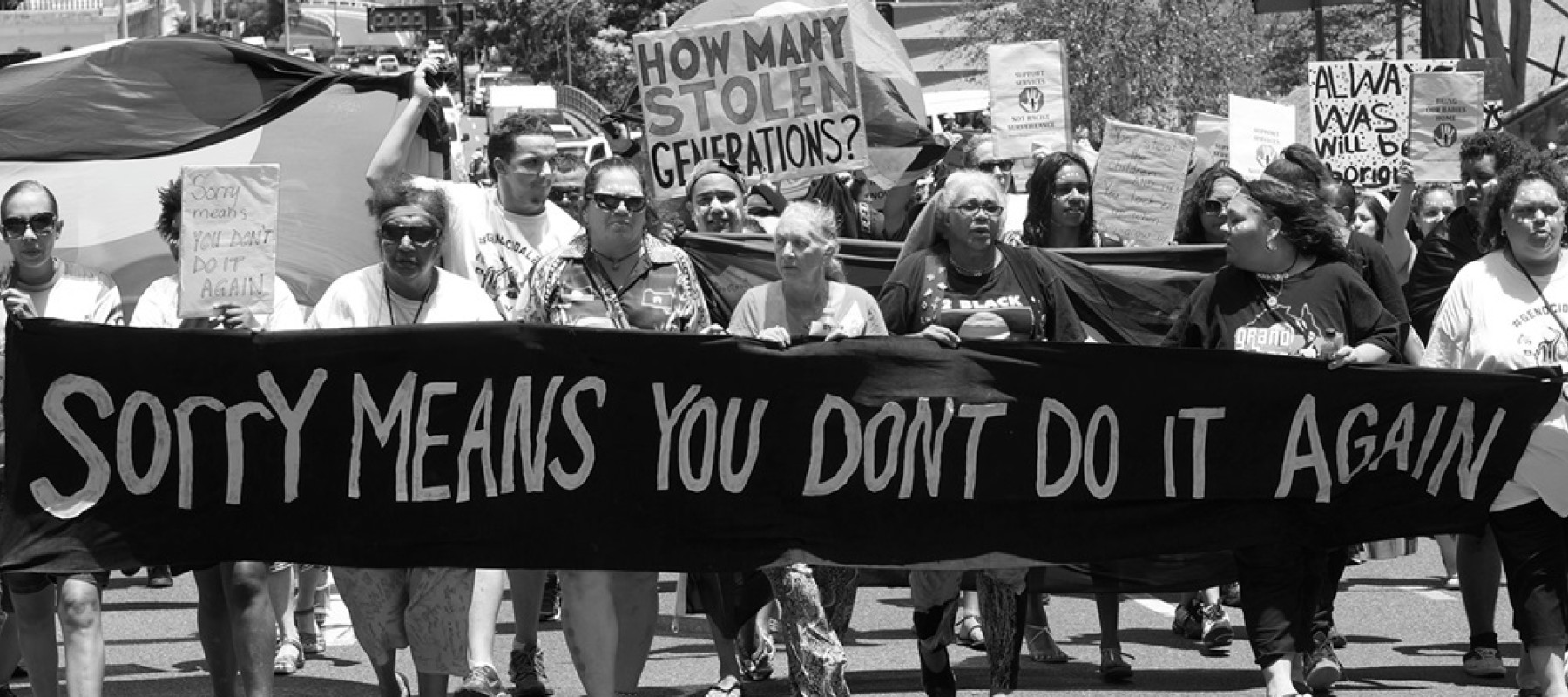Case study
After the Apology (2017)
Synopsis
Four grandmothers begin a national movement to tackle the removal of children and the rising number of Indigenous children in out-of-home care by involving their extended families.
Unquiet connection
Directed by Larissa Behrendt
Release
Festivals
Official Selection, Adelaide Film Festival
Official Selection, Maoriland Festival
Official Selection, Harlem International Film Festival
Official Selection, Human Rights Arts and Film Festival
Watch on SBS


Suellyn thought FACS would only remove children in extreme cases until her own grandchildren were taken in the middle of the night. Hazel decided to take on the system after her fourth grandchild was taken into state care. Jen Swan expected to continue to care for her grand children but she was deemed unsuitable by FACS, a shock not just to her but to her sister, Deb, who was, at the time, a FACS worker.
The rate of Indigenous child removal has increased at an exponential rate since Prime Minister Kevin Rudd delivered the apology to the ‘stolen generations’ in 2008. These four grandmothers find each other and start a national movement to place extended families as a key solution to the rising number of Aboriginal children in out-of-home care. They are not only taking on the system, they are changing it.
Awards
Australian Directors’ Guild 2018 – Best Direction of a Documentary Feature Film
2018 Nominee AACTA Award - Best Direction in Nonfiction Television
2018 Nominee AACTA Award - Best Documentary or Factual Program
2018 Nominee AACTA Award - Best Original Music Score in a Documentary
Synopsis
Four grandmothers begin a national movement to tackle the removal of children and the rising number of Indigenous children in out-of-home care by involving their extended families.
Unquiet connection
Directed by Larissa Behrendt
Four grandmothers begin a national movement to tackle the removal of children and the rising number of Indigenous children in out-of-home care by involving their extended families.
Unquiet connection
Directed by Larissa Behrendt
Release
Festivals
Official Selection, Adelaide Film Festival
Official Selection, Maoriland Festival
Official Selection, Harlem International Film Festival
Official Selection, Human Rights Arts and Film Festival
Watch on SBS
Festivals
Official Selection, Adelaide Film Festival
Official Selection, Maoriland Festival
Official Selection, Harlem International Film Festival
Official Selection, Human Rights Arts and Film Festival
Watch on SBS


Suellyn thought FACS would only remove children in extreme cases until her own grandchildren were taken in the middle of the night. Hazel decided to take on the system after her fourth grandchild was taken into state care. Jen Swan expected to continue to care for her grand children but she was deemed unsuitable by FACS, a shock not just to her but to her sister, Deb, who was, at the time, a FACS worker.
The rate of Indigenous child removal has increased at an exponential rate since Prime Minister Kevin Rudd delivered the apology to the ‘stolen generations’ in 2008. These four grandmothers find each other and start a national movement to place extended families as a key solution to the rising number of Aboriginal children in out-of-home care. They are not only taking on the system, they are changing it.
Awards
Australian Directors’ Guild 2018 – Best Direction of a Documentary Feature Film
2018 Nominee AACTA Award - Best Direction in Nonfiction Television
2018 Nominee AACTA Award - Best Documentary or Factual Program
2018 Nominee AACTA Award - Best Original Music Score in a Documentary
